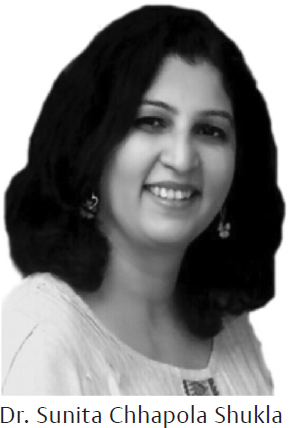Translate this page into:
AON Vision
Address for correspondence Sunita Chhapola Shukla, DNB, DORL, FCPS, MS (ENT), Department of ENT Surgery, Mumbai Port Trust Hospital, Mumbai 400037, Maharashtra, India (e-mail: drsunita7ent@yahoo.co.in).

Medical science has evolved over centuries and decades by scientific innovations, research, and academics. Research helps us in searching for answers in a systematic and scientific way. It is heartening that great volumes of clinical work exist, but it is a challenging task to assimilate, review, and draw conclusion from this crucial information.
Evidence-based medicine (EBM) helps to improve patient care and outcomes by providing high-level evidence of scientific data. Published reviews and online evidence-based guidelines offer excellent understanding of the clinical literature. Most of the research teachings lack simplicity of language, are not designed for easy understanding by clinicians, and deal the topic in great depths, which is not needed by most students and practicing clinicians. It is commonly believed that only those on the teaching faculty of medical colleges can do research, whereas those involved in private clinical practice cannot. Many private practitioners treat a vast number of patients and can significantly contribute to medical knowledge. With this great treasure of clinical material at their disposal, they are in a position to conduct meaningful clinical research, provided they keep thorough records of patients they see, desire to do research, and acquire basic training and understanding of clinical research methods.
I strongly believe that every practicing clinician must understand the fundamental basics of research and role of biostatistics. This is necessary to enable them evaluate the research studies presented in medical literature and at scientific conferences. It is this ability that can help them intelligently transfer relevant research into their own clinical practice for the benefit of their patients.
The Indian Society of Otology (ISO) is a professional organization comprising ENT (ear-nose-throat) surgeons with special interest in the fields of otology, otoneurology, implantation otology, and allied specialties. It came into existence in September 1991, Chennai under the leadership of Dr K. K. Ramalingam and has 1,600 members. Annals of Otology and Neurotology (AON) is an official publication of ISO.
The responsibility to promote global health by publishing medical research literature with high ethical and scientific principles lies with the editors of medical journals. The AON team has a vision to achieve excellence in academics and clinical work with the goal of imparting academic pursuit among medical students, clinicians, and practitioners. AON shall be dedicated to high ethical and scientific principles to publish peer-reviewed articles on all subspecialties of otology, including neurotology, implantation otology, endoscopic ear surgery, lateral skull base, cosmetic reconstruction, basic sciences, molecular otology, tinnitus, and oncology. It will provide free online access to all the articles to educate the scientific community, help in clinical decision making, and thus improve the quality of health care worldwide.






